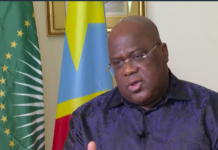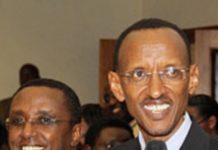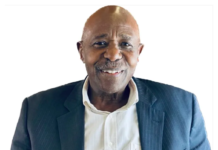In an opinion article in the French newspaper Marianne, British journalist Michela Wrong, known for her uncompromising and rigorous analysis of the true nature of Paul Kagame’s regime in Rwanda, sheds light on the methods of intimidation and threats employed by the dictator’s henchmen and admirers. Wrong reveals how she has become a target of slander from Kigali, denouncing the attempts to silence critics through intimidation tactics in Belgium and France, where Kagame’s regime has numerous media allies.
The article begins with Wrong’s anticipation for an evening at L’Horloge du Sud, a renowned restaurant in Belgium popular among the local African diaspora, where she was invited to present her latest book on Rwanda by a pan-African think tank. However, the journalist received a call from the Beninese journalist who was supposed to moderate the event, revealing that the restaurant owner had received threats and complaints from pro-government Rwandan groups based in Brussels and anonymous calls originating from Rwanda itself. Despite encouragement from the think tank to hold the event as planned, the level of intimidation was unprecedented, prompting Wrong to comment on how dictatorships suppress debate, drawing parallels with other African governments.
Wrong addresses the accusation of “negationism,” a term widely used by the Rwandan Patriotic Front (FPR), Kagame’s ruling party, to label anyone who dares to criticize President Paul Kagame. She emphasizes her firsthand experience of covering the Rwandan genocide in 1994, witnessing the mass killings and atrocities committed, stating that the idea of denying the genocide has never crossed her mind. However, being labeled a “notorious denier” is not limited to her alone; it affects respected academics, journalists, and even members of the Tutsi minority who express concerns about Kagame’s growing authoritarianism. Wrong empathizes with the Tutsi community, imagining the anguish they must feel when being defamed for raising legitimate concerns about Kagame’s regime.
The article highlights the irony that Wrong’s recently translated book focuses on Paul Kagame’s record of “transnational repression” after the genocide, specifically targeting Rwandan dissidents, journalists, and human rights activists who have fled the country. The regime’s attempts to silence her through anonymous calls and social media harassment only confirm the central thesis of her book. The author notes the paradox of the Rwandan government’s efforts to silence a British journalist while facing scrutiny in the UK, where the Ministry of Interior’s agreement to send unwanted asylum seekers to Rwanda is being challenged in court. Wrong criticizes Kagame’s lack of subtlety and boldness in preventing events critical of his regime. She recounts the cancellation of her book launch in Paris and the last-minute cancellation of a seminar in South Africa due to complaints from Rwandan officials.
Wrong argues that dictatorships may project intellectual confidence, but they are allergic to any form of dissent. She mentions the observation of Professor Filip Reyntjens, an expert on Rwanda, who points out the absence of FPR supporters engaging in substantive debates, as they consistently back down. The journalist then describes the incident at L’Horloge du Sud, where the restaurant owner eventually decided to cancel the event due to the mounting pressure. However, a panafrican think tank managed to relocate the event to another venue in Brussels. The article concludes with Wrong expressing shock at the banality of such intimidation tactics employed by an African regime that heavily relies on international aid and philanthropy. Rwanda exploits European legislation originally aimed at combating racism and xenophobia to enforce its vision in countries with Rwandan diaspora and embassies. Wrong warns that if the UK’s Secretary of State for the Interior, Suella Braverman, succeeds in the legal battle regarding the Rwandan immigration project, hundreds of individuals fleeing political persecution from countries like Iraq, Afghanistan, and Eritrea could potentially be directed to Rwanda—an alarming prospect indeed.
































































